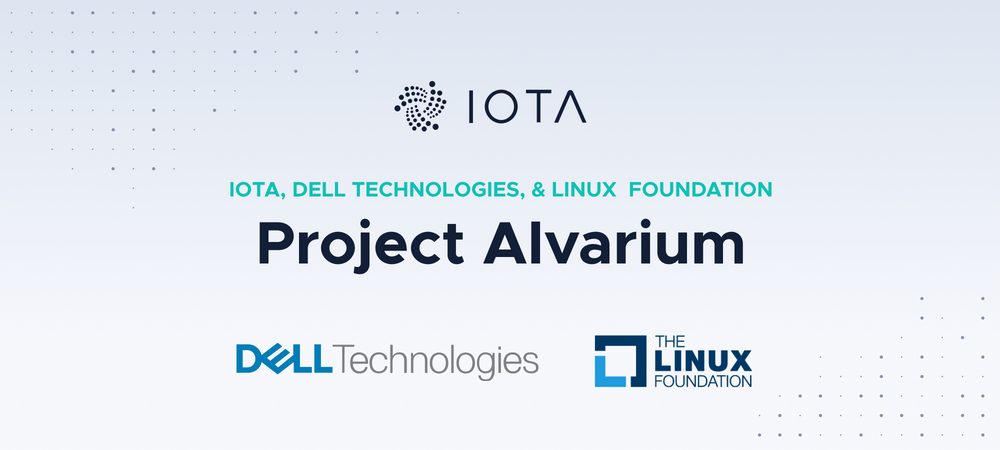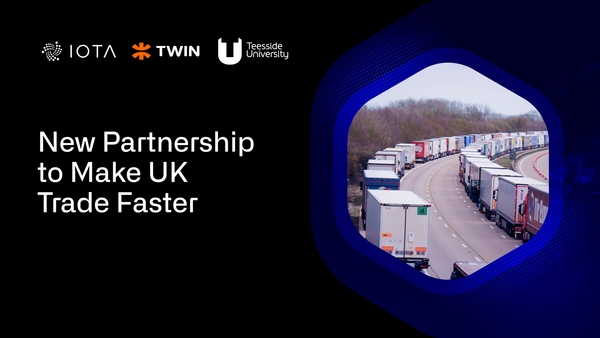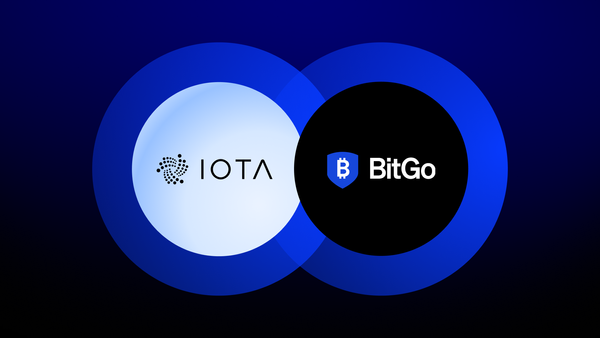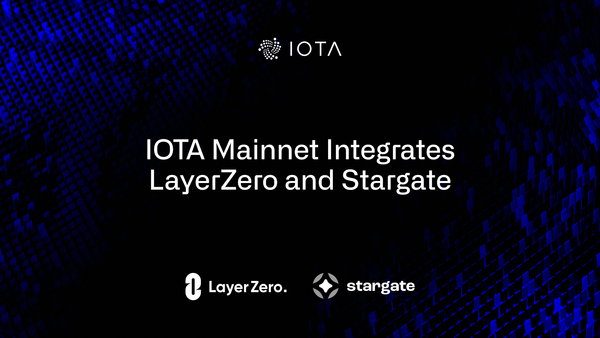IOTA, Dell Technologies, and the Linux Foundation team up for Project Alvarium
In our initial Towards Open Collaboration announcement, we discussed our new collaboration with the Linux Foundation under their LF Edge platform. We are working together to enable IOTA’s core principles, as described in the announcement of our recent partnership with the FIWARE Foundation. Now we would like to announce our first milestone between the IOTA Foundation, the Linux Foundation and one of their leading members, Dell Technologies.
Today marks the first step in our collaboration with Dell Technologies: a contribution has been submitted through the Linux Foundation for the development of a codebase seeded by Dell Technologies, known as a Data Confidence Fabric (DCF). The project will be hosted under the Linux Foundation under the name of Project Alvarium (latin for beehive).
Project Alvarium represents a milestone for open source development on distributed technologies, digital trust, data privacy and confidence in data. The majority of electronic systems and their data are currently disconnected and fragment, in fields like mobility, energy, construction, and home electronics. But there is a great appetite for change, and this collaboration will instigate it.
Moving forward, there will be regular progress updates on all of our Open Collaboration initiatives, and the others that develop, as milestones are achieved and major contributions are made to the respective Foundations we are collaborating with.
What is Project Alvarium?
Project Alvarium is about creating intrinsic trust across exceedingly diverse systems. The project will bring together systems from across industry, to build a common platform that enables trust from the point of data generation, or on chip, up to an operational platform. It comprises multiple components that give intrinsic trust to data within every sector, including operations, database integration, process control, telecom, and supply chain. Currently, most security models operate with a zero trust basis, but this does not scale. Data must be open, but secure, with rules around its use and access through a common open framework.
Where is data coming from, where is it going to, who has access, and what’s the relevance of it for my application or use case? Using multiple trusted and open components, Project Alvarium enables us to have a measurable confidence in the data we integrate into our projects, from its source. It creates a layered, common platform to tackle problems in data utilization and interoperability in an open and trusted way.
“Project Alvarium will completely redefine the way we view data and transparency, as well as improve the way every single industry handles privacy,”said Jason Shepherd, Edge and IoT CTO, Dell Technologies.“By creating the industry’s first method to deliver data with measurable confidence, we will fundamentally change how individuals, businesses, non-profit organizations and government entities alike manage, share and monetize their data efficiently at scale, all while maintaining privacy based on terms they establish.”
Project Alvarium allows leaders in the technology industry to come together around a common platform, provide insights and contributions around what they need, and derive maximum benefit from the data they generate. It also acts as an open trusted platform to provide insights outside of the technology industry. For example, councils can use this platform to understand the data from their city, while ensuring that their residents’ privacy is maintained.
“Data Confidence Fabrics address three inherent and often conflicting challenges within the massive debate over data — how to keep control in the hands of the owner, how to allow for its public use and which data to trust,”said Dominik Schiener, co-founder, IOTA Foundation.“I am confident we will see widespread adoption of this technology which will change the way we consume, trust and use data in the future.”
What is the role of IOTA?
IOTA adds strong security and trust capabilities to Project Alvarium. With the sheer number of devices, connections and variables when creating a data confidence fabric, you need a system that allows for feeless and scalable management of those data and connections. IOTA aims to be the connective tissue that binds the whole system together, but is initially integrated as an immutable storage and validation mechanism for the data confidence scores created by Project Alvarium.
IOTA has been focused on the bottom of the data stack: where it comes from, how it’s secured, how it gets to where it needs to go, and how you can trust it. The Data Confidence Fabric takes these low-level capabilities and provides an end-to-end solution that can be easily integrated into many other systems.
“Trust in data is increasingly important in today’s organizational environments. Project Alvarium is coming at an integral time as the intersection of control over data, transparency and privacy touch just about every single organization and person. IOTA’s inherent trust layer was developed specifically to address these challenges, and we look forward to the technology being a core enabler in the Data Confidence Fabric,”said David Sønstebø, Co-founder, IOTA Foundation.
Who will use this system?
We believe that the capabilities of Project Alvarium will be integral to the future of industry, providing a measurable way of ensuring trust in data. It will offer a simple toolset for Data Scientists, Data Analysts, Chief Data Officers and others to understand the value of their data, in a way they can trust. We expect it to eventually become part of the standard toolset of these professions and industries.
DCF lowers barriers to entry around data literacy, trust and utility. This can be a key enabler for policymakers and regulators around developing data privacy policy, data interoperability requirements and maximizing data utility for the benefit of those they represent.
“We’re coming to a convergence in technologies and a growth in data utilization, but for that to succeed and scale we need to be able to trust the data that we’re using.”said Mathew Yarger, Head of Smart Cities, IOTA Foundation.“This collaboration with Dell Technologies, and their progress on Data Confidence Fabrics, with adoption and support from the Linux Foundation under Project Alvarium, will serve as a key enabler for delivering the trust in data we need to progress in multiple industries.”
With Project Alvarium, a city, person, device or organization can trust that the data they are using has remained uncompromised from the source, regardless of whether that data was produced by other people or machines. There should never be a single company or brand that owns the trust process. By using a holistic and diverse system-of-systems approach, individuals, organizations, policymakers and others can use the data they need in a way that’s accurate, secure, and trusted, for data monetization, sharing and enabling large scale validation of data compliance.
How can I use it?!
A framework like Project Alvarium provides users with an open system that can be highly customized. Different modules and microservices can be chosen and modified, so that organizations can integrate their own algorithms on top of a trusted framework to best suit their needs. To see the DCF in action, visit the LF Edge space (Stand #) at IoT Solutions World Congress on October 29–31, where you’ll be able to see the unique modularity and flexibility it provides.
To access it directly, look out for Project Alvarium being seeded under the Linux Foundation this coming quarter, much like the EdgeX Foundry project was seeded by Dell Technologies in 2017. At this point, the solution will be open-source, downloadable and testable.
We’re excited to take our second step Towards Open Collaboration with the Linux Foundation and Dell Technologies under LF Edge and Project Alvarium, welcoming their community into ours, and our community into theirs. We believe this relationship embodies much of our core values at the IOTA Foundation around fee-free solutions, near real-time capabilities, and global scaling.
We look forward to continuing to bolster the capabilities of Project Alvarium through our unique data validation, transfer and communication capabilities, and by bridging our existing ecosystems. Together we can work towards enabling a truly open trust layer for both the internet and Internet of Things.
You can read our press release about the collaboration here.
Watch the video:
For more information on the IOTA protocol and what’s coming up around the bend, please subscribe to the official IOTA Foundation Blog, YouTube and Twitter. You can also sign up for the official IOTA Foundation Newsletter and if you want to engage directly with IOTA, join our official Discord server or email us at [email protected]




